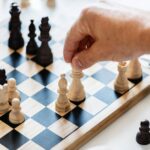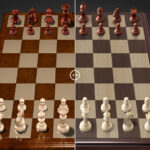Why Learning Chess is Important for Your Child
One of the more surprising aspects of chess is that it can actually improve creativity and original thinking. Creativity sounds like a non-measurable attribute, but studies have shown that children who play chess offer more creative and original solutions to problems than those who do not play chess. More 🡢







